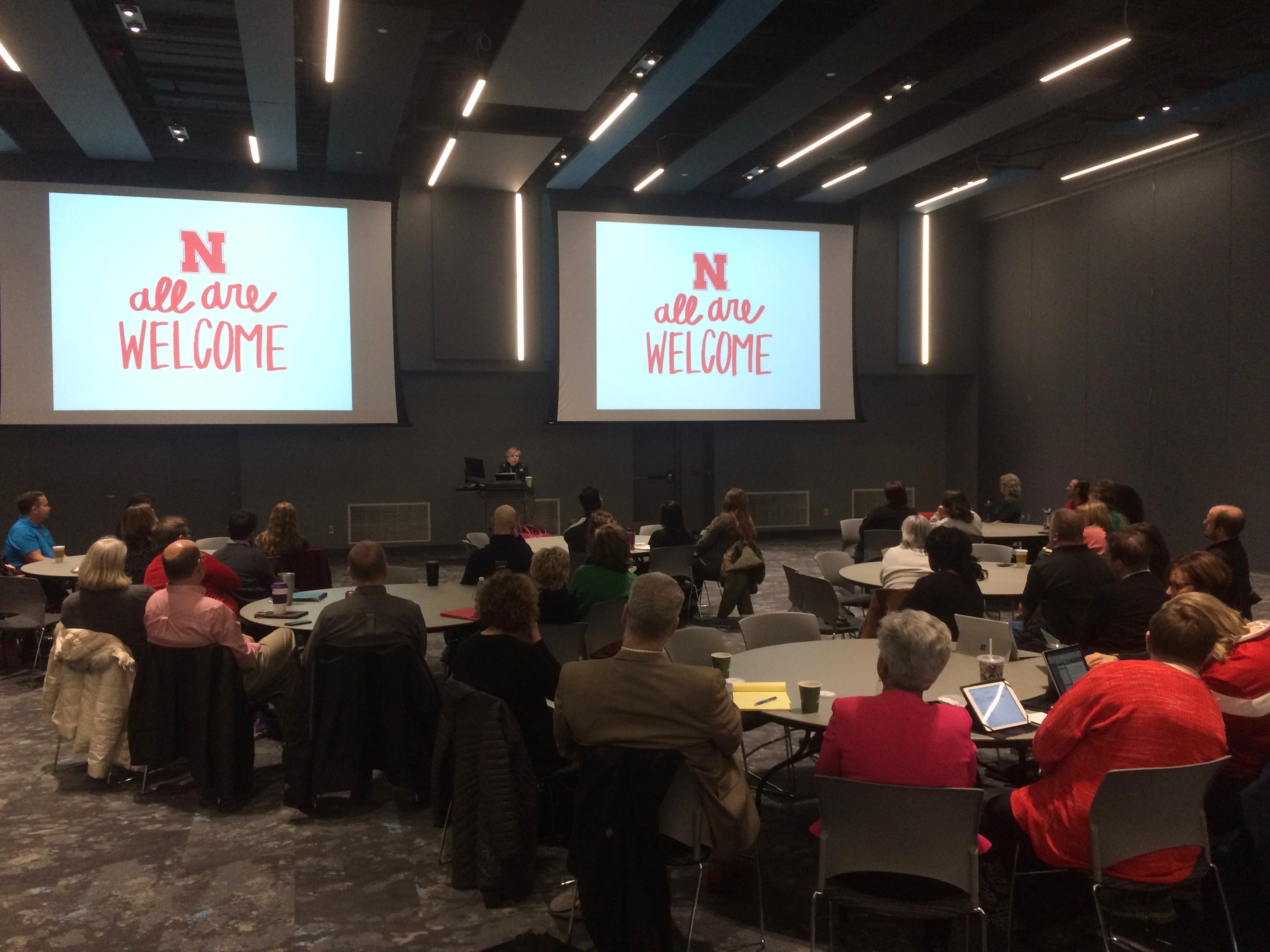Monday, March 26, 2018 5 takeaways from ‘Freedom of Expression & the Law’

On Friday, March 16, nearly 40 Student Affairs employees at the University of Nebraska-Lincoln attended a presentation on Freedom of Expression and the Law. Dr. Josephine Potuto, the Richard H. Larson Professor of Constitutional Law at the Nebraska College of Law, provided an overview of the First Amendment and its applications in the campus environment.
While freedom of expression is a complex construct, here are five basic takeaways from Potuto’s presentation:
1. Government (university) censorship of speech and expression is prohibited.
Only speech or expression that is considered fighting words (face-to-face, directed to a particular person, reasonably likely to provoke a fight) or a clear and present danger (expected to incite immediate violent reactions) is not protected by the First Amendment.
2. The university may not favor one viewpoint over another, but it can enforce policies.
Any forums hosted by the university (as a government agency) must remain viewpoint neutral and provide groups of opposing viewpoints equal opportunity for expression. However, policies may limit resources for speech by whom and for what purpose. For example, different scheduling requirements may exist for Recognized Student Organizations (RSOs) and outside groups, but it is necessary for any policies to be in place before an event.
3. There are three types of public forums for speech: traditional or designated, limited, and nonpublic forums.
The Regents Policy (#6.4.10) requires the university to designate spaces open for speech purposes. Staff should be informed of the type of forum so they may help enforce the policy as set forth. If you are unaware of the type of space in which you work, ask your supervisor for clarification on the space and its time, place and manner policies. Note: A Policy on Facilities Use and Grounds as well as a map of the designated areas has been drafted and is currently being reviewed by the Faculty Senate, then will move to the Chancellor for final approval. Thanks to Ryan Lahne for taking the lead in this policy development.
4. Students, faculty and staff have a right to respond to speech with speech.
Individuals are encouraged to focus on the issue, not the person with the belief, and to be respectful to one another.
5. Employees’ speech or expression may be limited when acting as a representative of the university (a government entity).
Government employees are not protected by the First Amendment from employment consequences. If speech interferes with the employer’s right to maintain an effective and efficient workplace, the employee may be sanctioned. Additionally, Nebraska prohibits partisan political activity during office hours, when performing official duties, or when wearing a work uniform.
For assistance in determining First Amendment issues in the workplace, staff are encouraged to bring forth questions to their supervisors or directors.